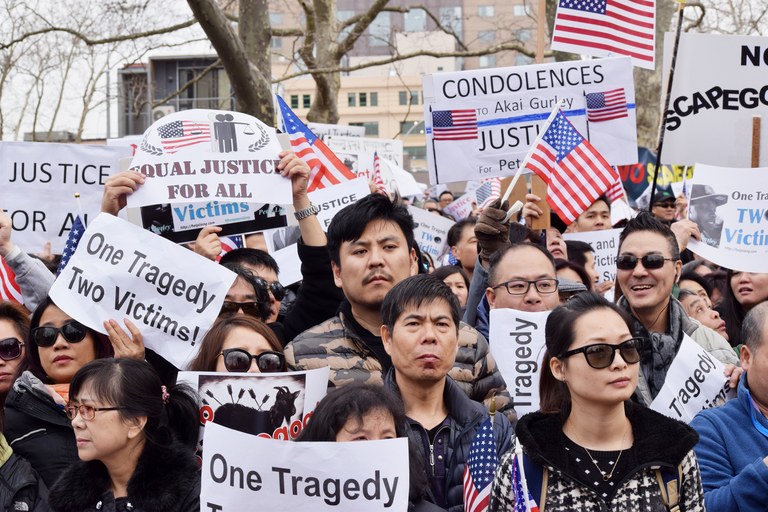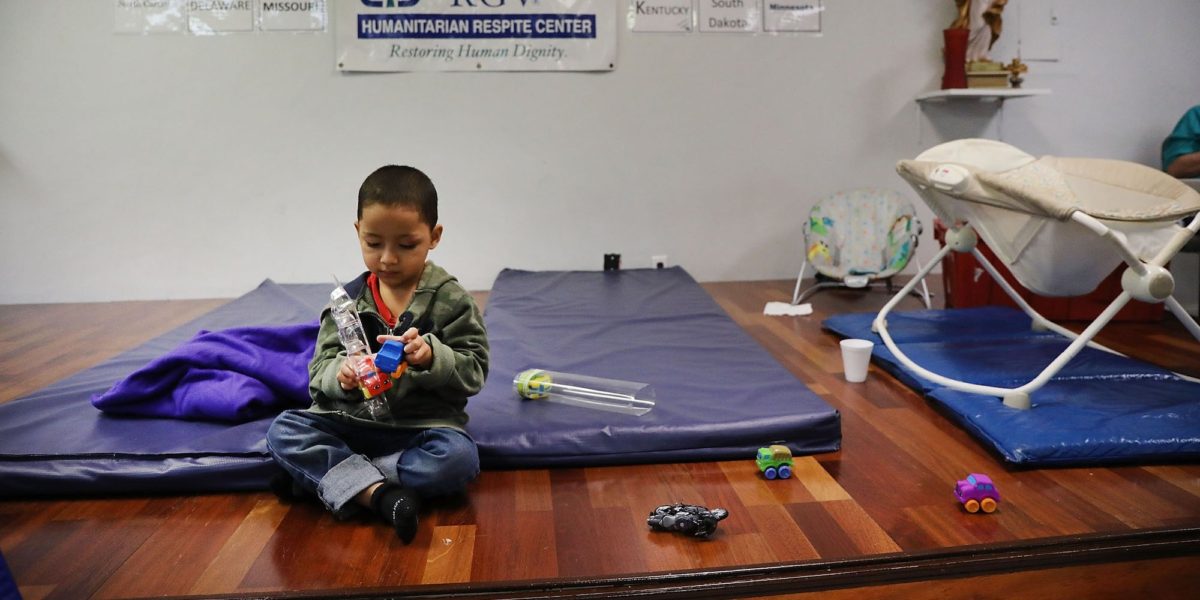
By Guest Contributor: Felix Huang (@Brkn_Yllw_Lns)
When three Asian American children were trotted out in front of a national audience as both the props for and the butt of a joke delivered by Oscars host Chris Rock, mainstream attention was momentarily placed on the extent to which Asian Americans face racism. Ironically enough, Rock’s joke simultaneously demonstrated anti-Asian racism while it relied upon the model minority stereotype, a trope that has long served to obscure anti-Asian racism.
The problems with the model minority myth are legion. I am not here to debunk the model minority myth—there is much academic and popular writing on the subject—but to examine one effect of its prevalence in public discourse: confused narratives of Asian American aggrievement.
The model minority myth suggests that Asian Americans don’t really experience racism, but from both experience and hxstory, we know this to be false. Anti-Asian racism, however, doesn’t quite fit conventional understandings of racism in the US, and thus Asian Americans are sometimes left not knowing how to talk about it—left without structures for our feelings of aggrievement.
Asian Americans have fought hard to dispel the model minority myth, but the joke at the Oscars shows its continued (though declining) staying power. The myth uses the educational and financial attainment of East Asian Americans as proof of equal opportunity in the US and the absence of anti-Asian racism. This has created a prevailing narrative that East Asian Americans don’t really face racism and therefore whatever representational racism East Asian Americans face is harmless.
(Because the model minority myth is popularly constructed around East Asian Americans, the proceeding discussion will focus on East Asian Americans. I do want to acknowledge that the model minority myth does harm to other AANHPI and POC.)
The misguided trope of Asian exceptionalism to racism manifests throughout pop culture, with the joke at the Oscars being the latest in a long litany. And we see this in our own lives, too. When dominant culture tells you that representational racism is harmless, and yet you’ve felt the sting of it in your own lived experience, what can you do?
The idea that representational racism is harmless is slowly (slowly) eroding. The new media landscape now allows wider access to counter-narratives, highlighting pop culture as a site of racialized meaning making and the relationship between cultural production and material, political consequences.
Yet even given this slow erosion, the acceptability of anti-Asian representational racism remains, buttressed by the data on educational and financial attainment. In the aftermath of the Oscars joke, it has been heartening to see people, particularly public figures, speaking out against “Asian bashing.” However, I find it troubling when this discussion is framed by some of my fellow East Asian Americans as something like, “Why does racism against Black people get all the attention, while racism against Asians are ignored?” Anti-racism is then presented as a zero-sum game, where attention to racism against some detracts attention away from racism against others.
This presentation is likely shaped by the pervasive influence of economics on our thinking to the point that anti-racism is viewed as a scarce resource rather than as a virtue that grows with use. I suspect that how race and hxstorical racism is commonly taught (i.e., as only hxstorical) also has something to do with it. Settler colonialism and anti-Indigenous racism – when even acknowledged – is usually described as an episode of the past, and any connection made to the present day is couched as culture blaming. Meanwhile, schools still celebrate Columbus Day. Slavery is presented as bad, but corrected with the (sanitized) work of Martin Luther King Jr., while other hxstories, including that of Asian Americans, are hardly mentioned at all.
Obviously that was something of a caricature. But my point is this: not teaching Asian American hxstories means that the framework we have to talk about racism is a reductionist Black-White paradigm that largely treats anti-Blackness as isolated and/or in the past. This then means that drawing attention to anti-East Asian racism (which is a good thing!), whether current or hxstorical, is done by simplistic comparisons to anti-Black racism (not a good thing!). And so we get sentiments like, “People talk about slavery, but did you know about the Chinatown lynchings?”
This brings me to the case of Peter Liang and the killing of Akai Gurley. I was recently part of a conversation hosted by Al Jazeera’s The Stream about the case. Joining me on the panel were Helena Wong of Grassroots Global Justice Alliance and two people who helped organize pro-Peter Liang rallies: Jerry Chan in New York and Tom Fong in Washington, D.C. During the conversation, both Chan and Fong brought up cases of East Asian American aggrievement. Fong talked about the discrimination that his grandfather faced, specifically a story about people pulling his grandfather’s queue (a hairstyle). Chan talked about the bamboo ceiling and the perpetual foreigner trope: “We send our kids to the best schools… [but] once they get out, guess what, they’re working for some guy who just graduated from community college… In US society, we don’t see Asians as part of the melting point. They still think we are foreigners.”
These stories of East Asian American aggrievement are indeed connected to how some ethnic Chinese have chosen to rally around Peter Liang. There is a strong sense that as East Asian Americans we are overlooked, ignored, and invisible. These feelings merit attention. Chan and Fong’s stories merit attention. But, the fact of our feeling overlooked does not alone justify or corroborate the topics that we choose to talk about in expressing our feelings of invisibility. Our desire to combat the stereotyped presumption of our political apathy does not permit us to sidestep consideration of how we take our “rightful place at America’s table”. The ends do not justify the means. Channeling East Asian American aggrievement towards mobilization around Peter Liang is wrongheaded, and it results in an innately anti-Black statement regardless of the stated intentions of the mobilized.
We need more complex frameworks for understanding racisms so that we have greater clarity in discussing Asian American aggrievement. This is why at every level of instruction we need ethnic studies and decolonized education. This is why we need cultural criticism to challenge and nuance the stories we tell.
Otherwise, we’ll keep treating anti-racism as a scarce resource – crumbs from White supremacy’s table to be competed over – instead of cultivating anti-racism as an increasing virtue.
Felix is a public policy graduate student who helps curate Critical Policy Blog and blogs intermittently at Broken Yellow Lines. His writing has previously appeared on Deadspin and Dime Magazine.
Learn more about Reappropriate’s guest contributor program and submit your own writing here.

